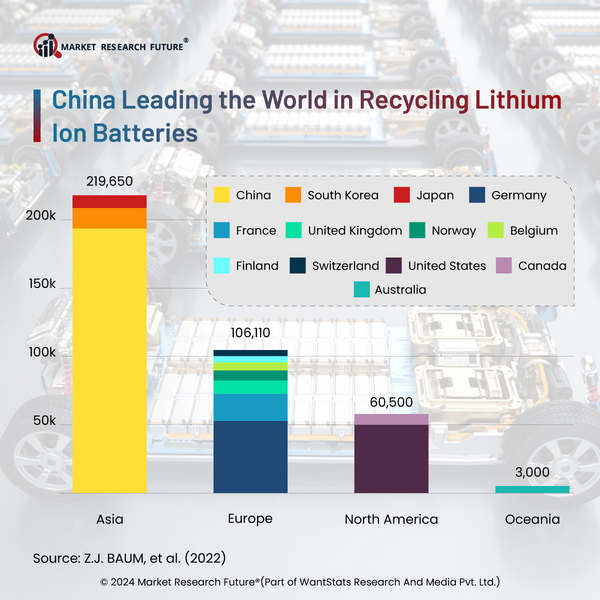China Leading Country in the World With Recycling of Lithium-Ion Batteries
Globally, the clean energy transition is taking a new shape to transform the face of countries regarding sustainability. Countries worldwide aim to achieve this goal by the end of 2050. The green energy transition demands a lot of changes in the industrial and energy sectors to make the transformation process faster. Recently, surveys have proven that China is leading the world in recycling batteries in 2024.
The demand for electric cars is rising due to the transition to clean energy worldwide. Therefore, there is a need for a more significant number of batteries to be produced to meet the demand of growing electric vehicles in the industry. The clean energy transition alters the face of the automotive industry with a new era of electric cars on the road. The green energy transition accelerates the recycling of lithium-ion batteries at a higher rate in China. Experts believe lithium-ion batteries can store essential minerals and materials needed to manufacture batteries. Thus, recycling lithium-ion batteries proves more sustainable than discarding them. China leads the world in recycling lithium-ion batteries, as most recycling plants are in East Asia. However, Europe follows China in terms of recycling lithium-ion batteries. The United States' recycling state in the industrial sector is quite different. This is due to more recycling plants than the policies supporting the recycling of lithium-ion batteries. Therefore, the United States lacks the battery recycling rate compared to European and Asian countries. Simultaneously, China will multiply by recycling metals in 2024. Hence, experts believe that the upgradation of China's advancement in the recycling of technology can lead to less need for new minerals for lithium-ion battery production by 2042. Thus, China is expected to grow exponentially in the electric vehicles sector due to the advanced recycling process of lithium-ion batteries in the upcoming years.





